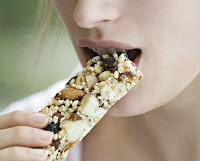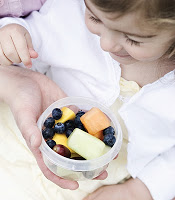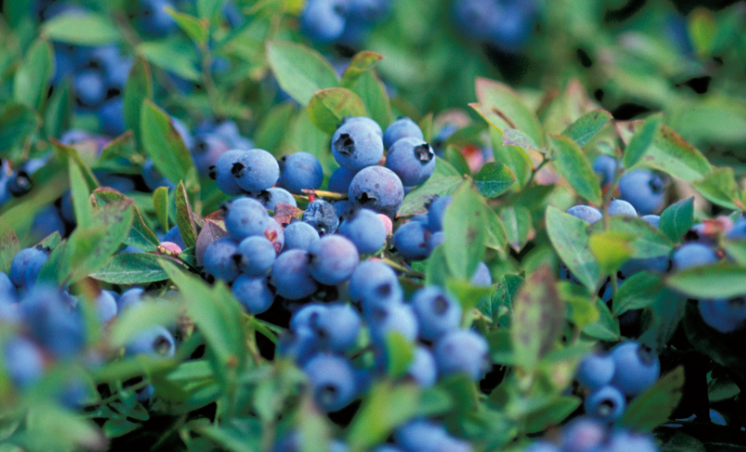Are You a Victim of the Healthy Snack Trap?
We are surrounded by nutritional food claims. Food labels, with their claims of high nutrients, lowered cholesterol, and healthier hearts are on practically every package in the grocery store aisle. The information provided on labels should help inform us as we make decisions that serve our health. After all, it seems as if more information would be better. But instead, all these food claims seem to be contributing to the confusion.
When is a bar not a bar?
Even as some products are brought to task for having claims that are misleading, there has been an increase in junk food masquerading as health food, according to SupermarketGuru.com. The report has put bars and sticks – we know them as breakfast bars, power bars, energy bars, granola bars and cereal bars – in the nutritional hot seat, mostly because they are foods that seem like a healthy choice but can sometimes be nothing more than a sugary, chocolatey treat in innocuous bar form.
The truth is, just because something looks like a bar, doesn’t mean it’s not just a cookie.
What’s more, these health claims seem to be effective. SupermarketGuru.com reports an increase in sales of bar-like foods. Double-digit percentage increases in sales have been found for health bars that have fat content, nutritional, calorie and fiber claims. In short, the bar business is booming. We love a rectangular food that sports packaging that says it’s healthy.
Treat trickery
 It’s one of those health conundrums. We want to think we are doing the right thing by choosing a snack that is good for us. But bars are far from the only food to blame. For instance, cereal boxes are notorious for having health claims, but depending on what you choose to eat (or serve your kids) for breakfast, that bowl might be no better than starting the day with a doughnut, says a study from Consumer Reports. According to the study, twenty-three top breakfast cereals marketed to children in the US are more than half sugar by weight, even though they received fair scores based on nutritional values. “Kellogg’s Honey Smacks and Post Golden Crisp have more than 50 percent sugar (by weight) and nine others are 40 percent sugar or more,” the report says.
It’s one of those health conundrums. We want to think we are doing the right thing by choosing a snack that is good for us. But bars are far from the only food to blame. For instance, cereal boxes are notorious for having health claims, but depending on what you choose to eat (or serve your kids) for breakfast, that bowl might be no better than starting the day with a doughnut, says a study from Consumer Reports. According to the study, twenty-three top breakfast cereals marketed to children in the US are more than half sugar by weight, even though they received fair scores based on nutritional values. “Kellogg’s Honey Smacks and Post Golden Crisp have more than 50 percent sugar (by weight) and nine others are 40 percent sugar or more,” the report says.
Consider the claims that surround us when it comes to chocolate. It’s called a superfood and is lauded as being as healthy as fruit. But those claims are limited to dark chocolate. And while the benefits are legit, it doesn’t always mean it’s the best choice. As a recent article in CalorieLab points out, “A fudge brownie has more fiber than chicken broth; that doesn’t make it just as good for you.”
The fraught world of food labeling may be to blame for what the Center for the Science of Public Interest term “food labeling chaos”. They call for standardizing labels, realistic serving sizes and more prominent calorie and nutritional information that will facilitate, not obfuscate. Until then, we must navigate these food mazes on our own, and filter the healthy foods from those that just say they are.
To the Rescue: Fruit & Veggie Alternatives to the “Bar”
If you’ve got a tendency to turn to the less than healthy “snack bar”, try some new moves – over to the produce aisle. Let’s face it: those foods without packaging don’t have nutritional claims, and that means fruits and vegetables are always a positive choice. And, they can fill the urge to snack in a healthier way if you are relying too much on the bar. (Also, frozen fruits and veggies fit the bill, even though they come packaged. They are just as nutritious as fresh, and the ingredients list, if you choose reliable brands, should consist of a single item.)
If you’re seeking energy:
Energy bars promise a boost during the mid-day slump, but “energy” often simply means “calories”, and any calorie will provide at least a temporary boost. Opt for snacks that are a natural source of energy and provide nutrients that truly keep you going. High energy fruits include bananas, strawberries, and pineapples. Wild blueberries, with their high level of antioxidants, vitamins and nutrients, are known to protect against fatigue and are a reliable “brain food” that can provide a clarifying boost. Cabbage and spinach are thought to rank high in energy creation: try bok choy or a cup of broccoli.
If you need it pre-packaged:
We love the bars—they can be carried easily in a purse or even a back pocket, and they are always in that handy wrapper. But is there a better wrapper on earth than the banana? The apple? The grape? Some fruits that have ease of transport and require a single utensil are the kiwi (snack by slicing in half and dipping in with a spoon, like fuzzy fruit cup) or avocado (also spoonable when cut in half and sprinkled with a little lime – thanks, nature!).
If you don’t have time for a sit-down meal:
If it’s a speedy meal you’re in need of, a smoothie could be the answer. If chewing is required, opt for a wrap – snug up your favorite fruits and nuts with schmear of peanut butter, and wrap it all up in a tortilla. Hummus and veggies make a satisfying mini-lunch or snack as well if you are desk-bound.
If you’re looking to fill your stomach:
A high-fiber diet can help reduce the risk of heart disease and diabetes, but fiber is also desirable because it’s filling. The highest fiber fruits? Apples, avocado, bananas and berries. When it comes to veggies, fiber stars are beans (yes, they are vegetables), and tomatoes.
If you just like things that taste like cookies:
 Sure, we say it’s just convenience, but it may be that we love a granola bar because it resembles a cookie, in more ways than one. If you’ve decided to cut back on cookies-by-another-name, try making your own trail mix. It’s sweet, crunchy, and low fat grains and nuts provide the cookie-like crunch. Or, embrace foods you can love just as much as a cookie. Go for fruit salads made with fruits that seem like indulgences, like pineapple, papaya and melon. Spoil yourself with hummus or Greek yogurt dip for veggies, or bake up some kale chips or baked sweet potato fries for veggie-based snacking.
Sure, we say it’s just convenience, but it may be that we love a granola bar because it resembles a cookie, in more ways than one. If you’ve decided to cut back on cookies-by-another-name, try making your own trail mix. It’s sweet, crunchy, and low fat grains and nuts provide the cookie-like crunch. Or, embrace foods you can love just as much as a cookie. Go for fruit salads made with fruits that seem like indulgences, like pineapple, papaya and melon. Spoil yourself with hummus or Greek yogurt dip for veggies, or bake up some kale chips or baked sweet potato fries for veggie-based snacking.
Livestrong.com has some Healthy Alternatives to Snack Foods.
Step Up to the Bar!
You can always make your own – Eating Well offers up Fruit Pecan Granola Bars, Almond Honey Power Bars and Apricot Walnut Cereal Bars as homemade alternatives to the packaged variety.

